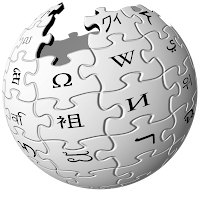 My uncle was visiting from the states over Christmas (seems like such a long time ago already!) and he mentioned that a friend of his used to work at Amazon where they had whiteboards in the lifts for colleagues to share ideas or suggestions on their way between floors.
My uncle was visiting from the states over Christmas (seems like such a long time ago already!) and he mentioned that a friend of his used to work at Amazon where they had whiteboards in the lifts for colleagues to share ideas or suggestions on their way between floors. I love stories like that as they really act as a symbol of different organisational cultures, same people different rules. So I googled their CEO, Jeff Bezos, and found a great sound bite that summarised his thinking on effective teams:
Fundamentally he's saying that an effective, high performing, team should be no larger than around 5-10 people and I wondered if they ever really are? I've worked in project teams of upwards of 50 - 60 people but thinking back there's always a nucleus that are the glue holding the project together. A group who've got each others backs, work well together, make decisions and are pulling towards a single outcome. They're normally the people that the outcome matters to most personally (and I mean neck on the line, rather than 'allocated resources' or vested interests) and they are always the people that you can count on to get the job done. The 'pizza team' ARE the project... highest risk if something goes wrong, but most importantly, the highest sense of achievement when it all goes right.
These teams aren't the ones that organisational charts or contractual arrangements define but the ones that form organically. Obviously we don't always need to be part of the 'Pizza Team' for everything we work on but it's useful to recognise that, on the whole, we choose ourselves whether we are or aren't.
Sources and Credits
http://www.gadgetopia.com/post/357
http://www.fastcompany.com/magazine/85/bezos_2.html
"If you cannot feed a team on two pizzas it's too large"
Fundamentally he's saying that an effective, high performing, team should be no larger than around 5-10 people and I wondered if they ever really are? I've worked in project teams of upwards of 50 - 60 people but thinking back there's always a nucleus that are the glue holding the project together. A group who've got each others backs, work well together, make decisions and are pulling towards a single outcome. They're normally the people that the outcome matters to most personally (and I mean neck on the line, rather than 'allocated resources' or vested interests) and they are always the people that you can count on to get the job done. The 'pizza team' ARE the project... highest risk if something goes wrong, but most importantly, the highest sense of achievement when it all goes right.
These teams aren't the ones that organisational charts or contractual arrangements define but the ones that form organically. Obviously we don't always need to be part of the 'Pizza Team' for everything we work on but it's useful to recognise that, on the whole, we choose ourselves whether we are or aren't.
Sources and Credits
http://www.gadgetopia.com/post/357
http://www.fastcompany.com/magazine/85/bezos_2.html
